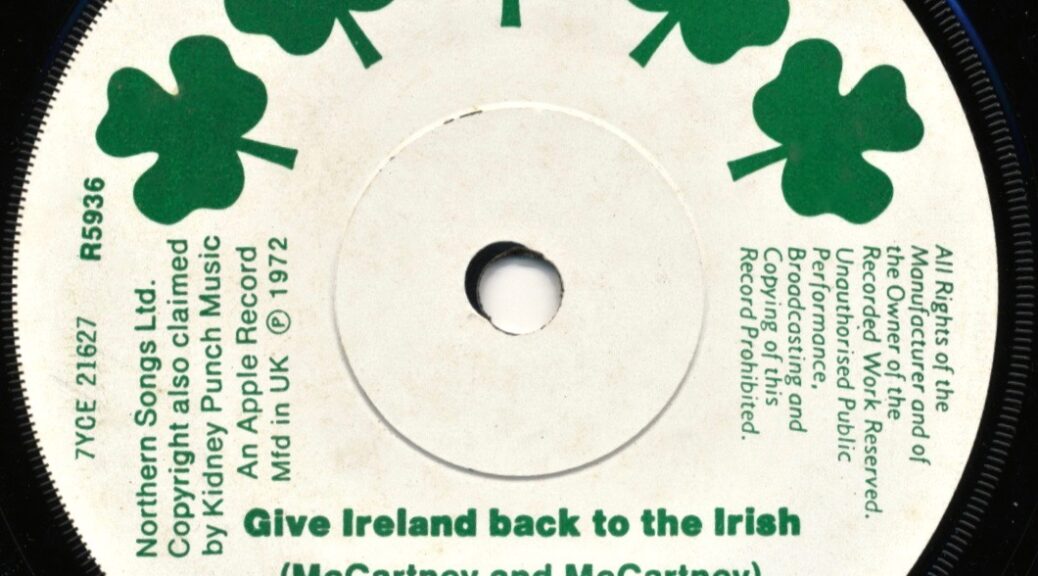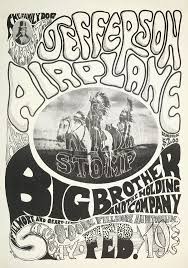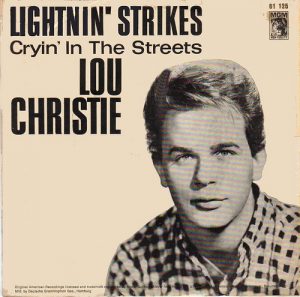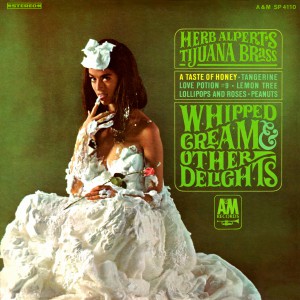February 19 Music et al
Rock Venues
February 19, 1966: Jefferson Airplane and Big Brother and the Holding Company with Janis Joplin performed at the Fillmore Auditorium. (see March 8, 1968)
February 19 Music et al
Billboard Hot 100
February 19 – 25, 1966 – “Lightnin’ Strikes” by Lou Christie #1 on the Billboard Hot 100.
From Songfacts dot com: The song was released as a single on Christmas day 1965…. Speaking about the song in the September 16, 2005 issue of Goldmine magazine, Lou Christie said: “And they didn’t even like it! (Label head) Lenny Shear threw it in the wastebasket and said it was a piece of crap! So we put up our own money to get it played around the country, and it started taking off once it got played. Three months later, Lenny was taking a picture with me for Billboard magazine, handing me a gold record. I loved that.”
February 19 Music et al
Billboard #1 album
February 19 – March 4, 1966 — Herb Alpert’s Whipped Cream and Other Delights is the Billboard #1 album. It is one of the most famous album covers of all time. (see Whipped Cream for more)
February 19 Music et al
The Beatles
Paul McCartney and Wings
February 19, 1972: Paul McCartney released “Give Ireland Back to the Irish.” BBC immediately banned the song.
From Songfacts dot com: Music and political historian Alexander Baron writes: “In March 1972, the British music weekly Melody Maker published a 2 page article called “CENSORED” which reported on a number of songs that had been banned – that the BBC, the official British government broadcasting body, had refused to play. Surprisingly, most of the article was devoted to a Paul McCartney composition, “Give Ireland Back To The Irish.”
The song was written as a protest against Bloody Sunday, a notorious incident which took place in Northern Ireland on January 30 that year in which British troops shot dead a number of protesters. At the time of the Melody Maker article the song was #23 in the paper’s chart and #19 in the BBC chart but was banned as “unsuitable for broadcasting.” The DJ Alan Freeman refused even to mention the song directly, and in his rundown of the Radio One chart referred to it only as “a song by a group called Wings.” (see Mar 23) (also see Sunday Bloody Sunday for more about the event)
February 19 Music et al
George Harrison
February 19, 1981: George Harrison was ordered to pay ABKCO Music the sum of $587,000 for “subconscious plagiarism” between his song, “My Sweet Lord” and the Chiffons “He’s So Fine.”
From Song Facts dot com: In 1976, Bright Tunes Music sued Harrison because this sounded too much like the 1963 Chiffons hit “He’s So Fine.” Bright Tunes was controlled by The Tokens, who set it up when they formed the production company that recorded “He’s So Fine” – they owned the publishing rights to the song.
During the convoluted court case, Harrison explained how he composed the song: He said that in December 1969, he was playing a show in Copenhagen, Denmark, with the group Delaney and Bonnie, whose piano player was Billy Preston (who contributed to some Beatles recordings). Harrison said that he started writing the song after a press conference when he slipped away and started playing some guitar chords around the words “Hallelujah” and “Hare Krishna.” He then brought the song to the band, who helped him work it out as he came up with lyrics. When he returned to London, Harrison worked on Billy Preston’s album Encouraging Words. They recorded the song for the album, which was released on Apple Records later in 1970, and Harrison filed a copyright application for the melody, words and harmony of the song. Preston’s version remained an album cut, and it was Harrison’s single that was the huge hit and provoked the lawsuit, which was filed on February 10, 1971, while the song was still on the chart.
In further testimony, Harrison claimed he got the idea for “My Sweet Lord” from The Edwin Hawkins Singers’ “Oh Happy Day,” not “He’s So Fine.” (see May 11)
February 19 Music et al
Chiffons He’s So Fine
George Harrison My Sweet Lord
He’s So Fine versus My Sweet Lord




